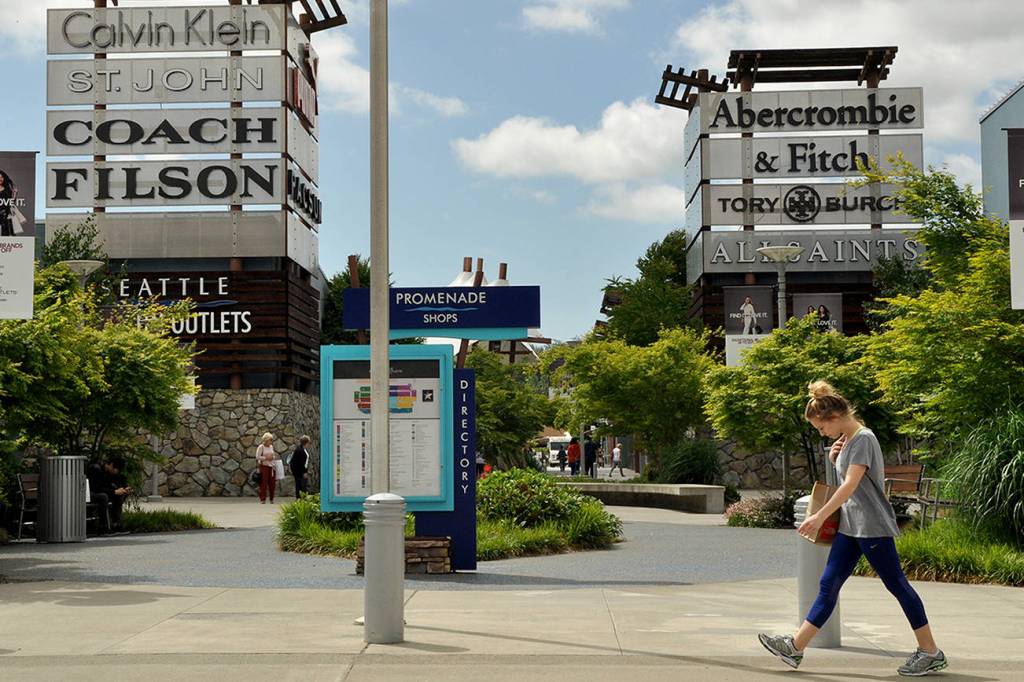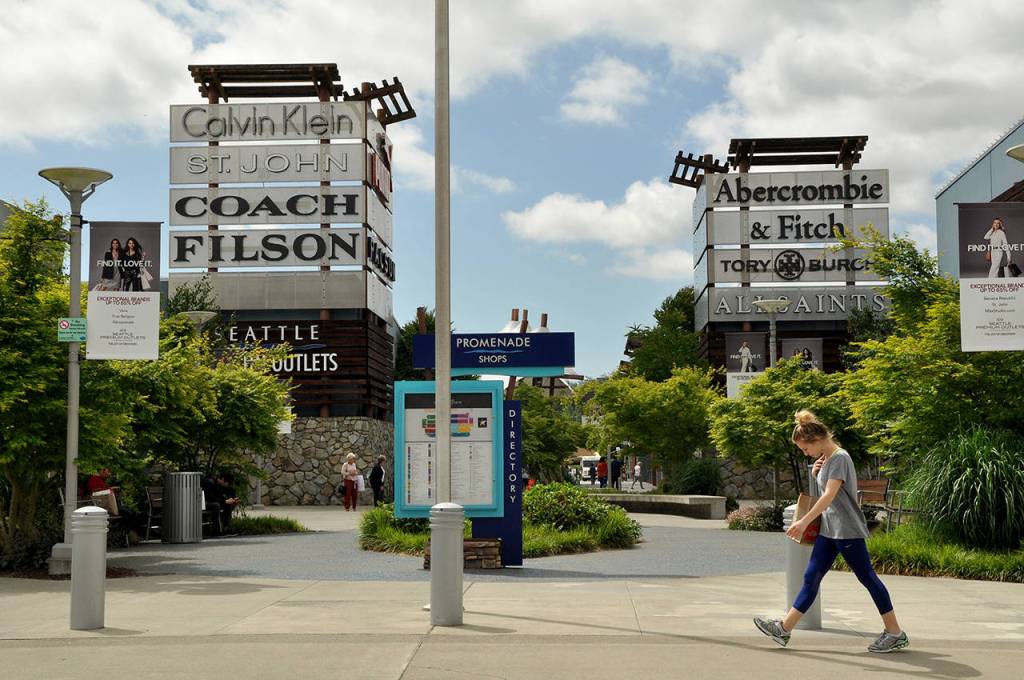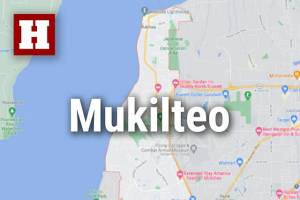Deal ends legal fight and allows Tulalips a cut of sales tax
Published 1:30 am Wednesday, January 29, 2020


OLYMPIA — The Tulalip Tribes have reached an agreement with the state and Snohomish County to end years of litigation and begin sharing millions of dollars in sales tax receipts generated at the Quil Ceda Village shopping center.
Under a deal months in the making, the tribe would receive a sliver of the state’s sales tax collections this budget cycle, with the sum growing to an estimated $30.2 million in 2025. Snohomish County, meanwhile, would continue receiving all its regular sales tax allotment.
Before most of the revenue-sharing kicks in, the tribe will spend $35 million to design and build a 48-bed civil commitment center in the county, a capital investment sought by the state.
All the terms are contained in a Jan. 8 memorandum of understanding. Signers from the tribes, the county and the state hope it will spur settlement of a five-year federal lawsuit and a generation of political battles over who can rightfully collect sales tax at Quil Ceda Village.
But the fate of the three-party accord hinges on the Legislature. It must give Gov. Jay Inslee authority to negotiate sales tax sharing compacts with federally recognized tribes.
That effort will start Thursday with hearings in the House and Senate on bills empowering the governor to act. Terms of a revenue split and capital investment — the key components of those bills and any future compacts — are drawn from the memorandum of understanding involving the state, county and tribes.
“This has been a longstanding issue over who has taxing authority within tribal lands,” Tulalip Tribal Board Chairwoman Teri Gobin said in an email.
“For 20-plus years, the Tribe has attempted to get both the State and County to enter into a tax compact to share some of the tax revenues generated within Quil Ceda Village,” she wrote. “To date, we have never received a dollar, yet we have been 100% responsible for the costs of all the infrastructure and governmental services that allow those businesses to operate.”
The deal “gives us certainty moving forward with economic development and a revenue stream to pay for infrastructure and governmental services that support current and new business, customers and employees, and the entire community.”
State and county officials agreed that financial certainty and avoiding court confrontations are critical benefits.
“It is ending the war of the courts on retail sales tax,” said Rep. Gael Tarleton, D-Seattle, prime sponsor of House Bill 2803, the legislation that would empower the governor to negotiate sales tax sharing.
Snohomish County faced the prospect of losing out on $7 million a year, or more, if it didn’t prevail in the legal battle. Now its leaders can breathe easy — presuming lawmakers act — and begin working with the tribes to find a site for the behavioral health facility.
“The resulting legislation will resolve the dispute regarding local taxation,” said Snohomish County Executive Dave Somers. “I will be very happy to have this litigation behind us and look forward to working together on many issues of mutual interest.”
Under existing law, Native Americans don’t pay sales tax on retail purchases in Washington, and Indian-owned businesses are exempt from business and occupation taxes. Non-tribal businesses on tribal land must collect taxes on sales to non-Indians.
In June 2015, the Tulalip Tribes sued the state and Snohomish County to stop the state’s collection of the tax on sales to non-Indians at non-tribal stores in Quil Ceda Village. The tribes contended it was their exclusive right, as a sovereign government, to tax the hundreds of millions of dollars in yearly sales at the thriving shopping destination. The U.S. Department of Justice backed the tribes in the case.
An eight-day trial in May 2018 revealed the breadth and depth of the tribe’s economic evolution, fueled in part by the success of Quil Ceda Village.
The village consists of 2,100 acres of shops, a resort and a casino, but no homes. Major shopping attractions include Seattle Premium Outlets, Cabela’s and Walmart.
In 2016, the state collected nearly $27 million in sales tax on more than $400 million in sales at Quil Ceda Village. Snohomish County and Community Transit took in another $9 million in taxes.
The state spends its sales tax dollars on education, health care and other programs. The county used its share to fund day-to-day operations. The potential loss of $7 million is the equivalent of roughly 70 employees.
In October 2018, a federal judge ruled in favor of the county and state. The tribes appealed.
Last April, days before initial briefs were due to the U.S. Ninth Circuit Court of Appeals, representatives of the state Attorney General’s Office requested the county and tribes try mediation. Nine months of talks led to the Jan. 8 memorandum of understanding.
And it will lead to a compact and the start of revenue-sharing as soon as July if lawmakers act.
“If the legislation doesn’t pass, we proceed with the appeal,” Gobin said.
Under the agreement, the Tulalips will get $500,000 of sales tax that now goes to the state. It also will get the business and occupation tax the state levies on certain transactions.
Then, in the 2023-25 budget cycle, the tribes can receive a larger share of tax revenues collected by the state from existing Quil Ceda Village businesses. At that point, they will be entitled to half of the receipts as long as the tribe obtains a site and permits for the civil commitment center. Otherwise, it will be 25% until those conditions are met.
In the meantime, for any development built after a compact is signed, the Tulalips will receive 25% of the state’s portion of sales tax. That will increase to 60% once permitting is in place for the commitment center.
A fiscal analysis projects the Tribes could receive $4.14 million in this state budget, $8.5 million in the next budget and $43.1 million in the 2023-25 biennium. Starting in 2025, the tribe’s share could amount to around $30 million a year.
If there are future similar compacts, not every tribe will need to spend $35 million. The legislation authorizing revenue-sharing — House Bill 2803 and Senate Bill 6601 — says the governor must determine if a tribe’s “qualified capital investment” is substantially proportionate to what it stands to garner under the compact and if the sum is in line with amounts in other compacts.
Getting a behavioral health facility was key to the negotiations, Gobin said.
“The State asked if we would build a civil commitment facility for them, they said this was a huge issue in terms of funding and siting the facility, and thought it would go a long way in showing good faith for a future partnership,” Gobin said.
The Tulalips will work with the state Department of Social and Health Services and the county to find a location. It could be on trust or tribal land. It might wind up in a portion of unincorporated Snohomish County.
Tribal members will have preference at the finished 48-bed facility, which might include services such as voluntary inpatient mental health and chemical dependency treatment.
Sen. John McCoy, D-Tulalip, a retired general manager of Quil Ceda Village, has pushed for years for some kind of revenue-sharing arrangement.
“It’s been a long process. Now it’s up to the Legislature to pass it,” said McCoy, who was not part of the talks that led to the memorandum of understanding. “From my point of view it is a good policy. Look at all the other compacts the tribes have negotiated with the state. It’s nothing new.”
Jerry Cornfield: 360-352-8623; jcornfield@heraldnet.com. Twitter: @dospueblos.






